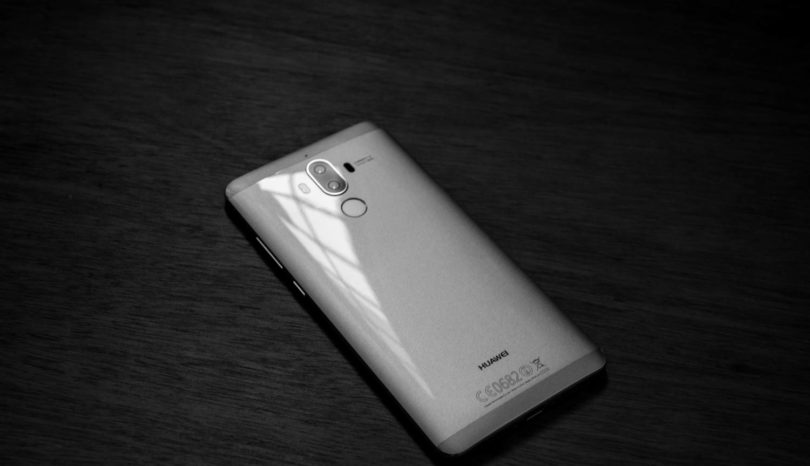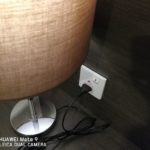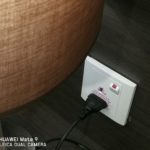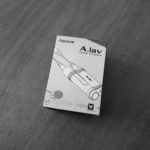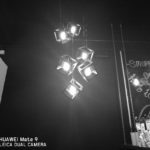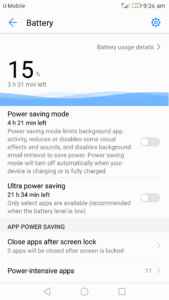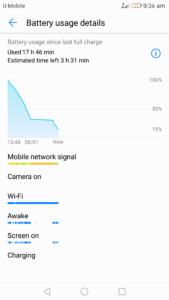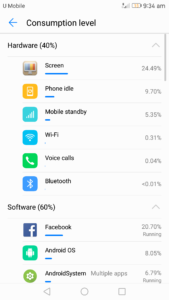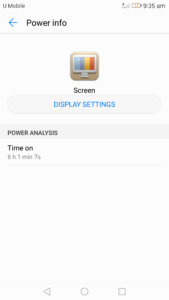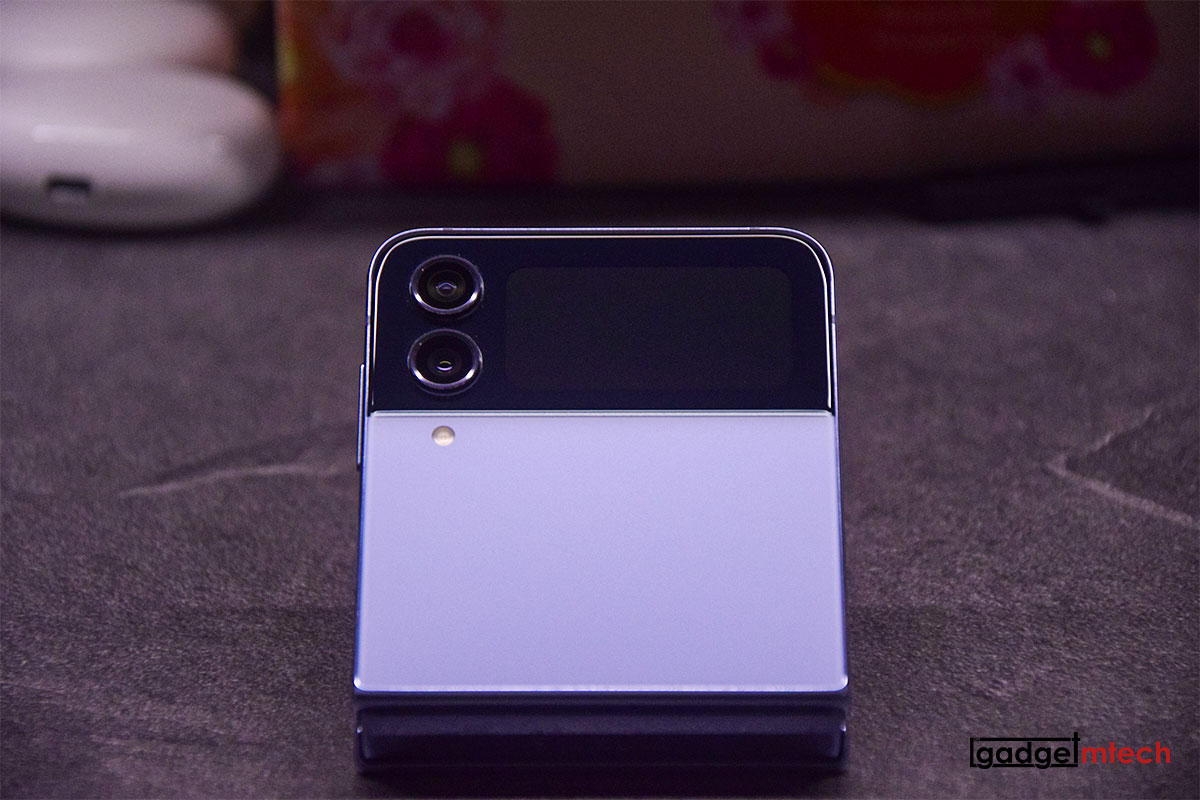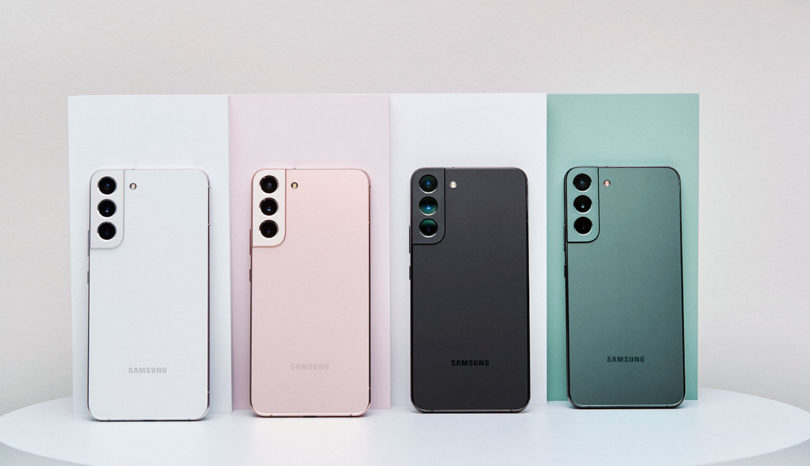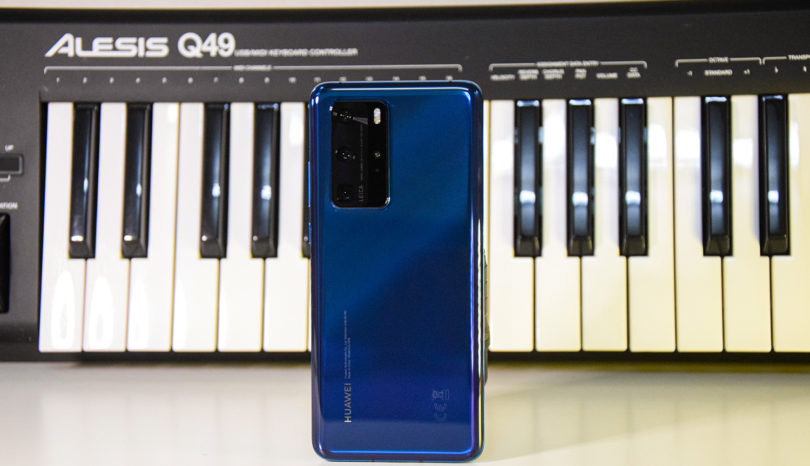Introduction
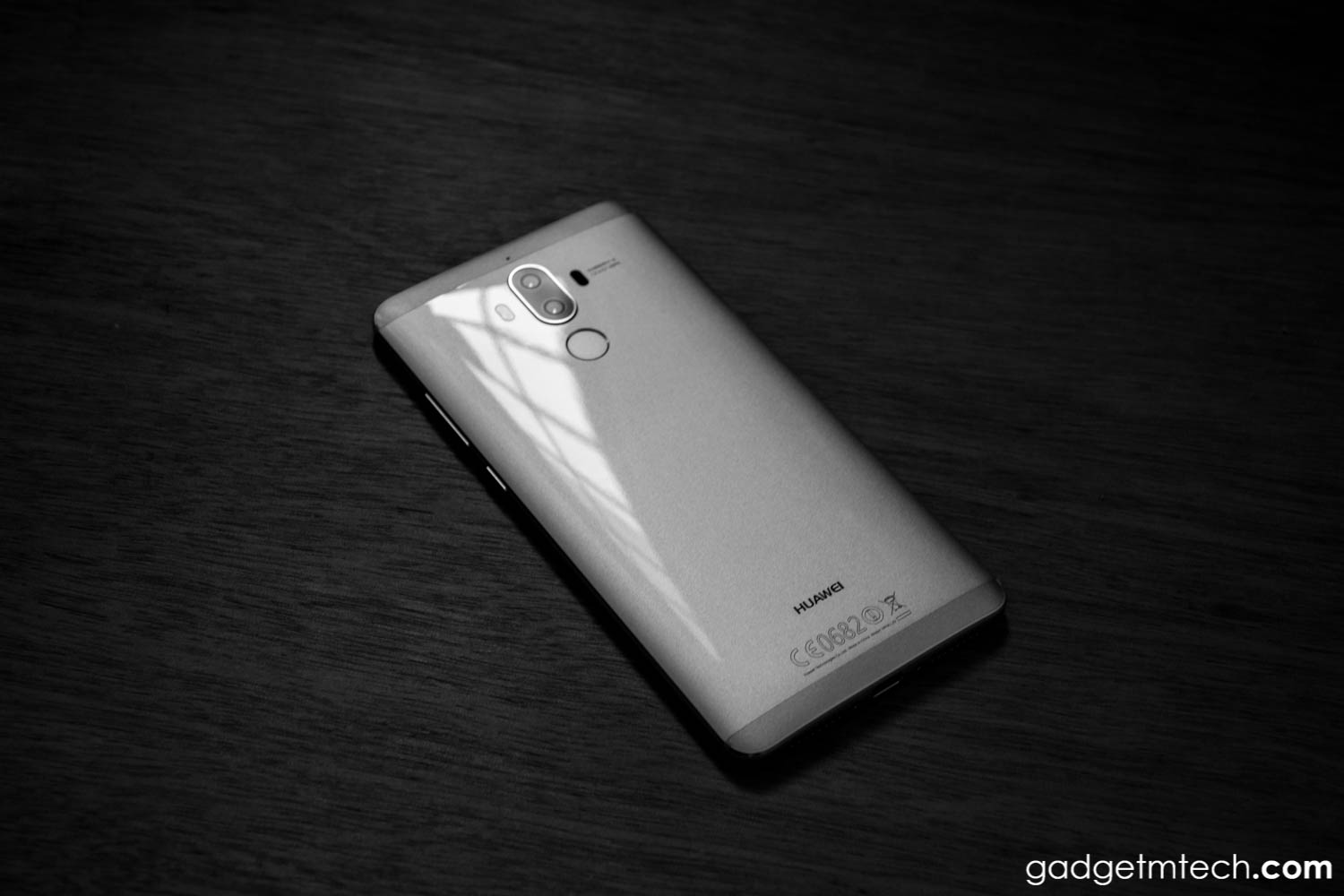
Huawei, I believe many people have heard about this brand, or even know about it. The company had already been around in Malaysia for quite a few years. 2016 was a great year for the company as the P9 series surpassed 10 million shipments, that’s a lot! The company introduced the Mate 9 series at the end of 2016, and the regular Mate 9 was launched just a few weeks after its official announcement. Well, we’ve been spending quite a long time with the device, and it’s time for the full review treatment before the official unveils of the P10.
Unboxing
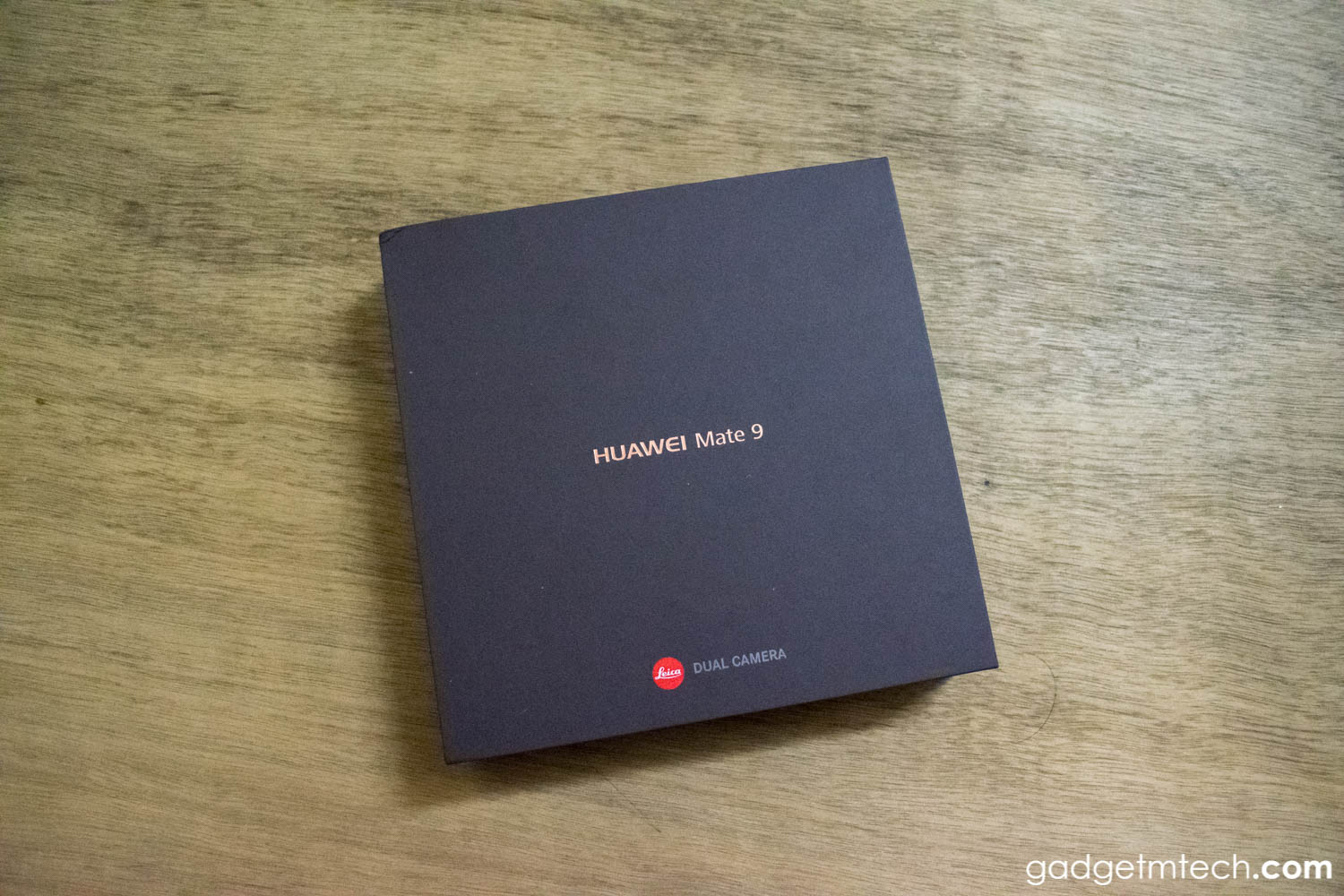
The Mate 9 comes in a black box, much like its predecessor. Like the P9, there’s a “Leica” logo below, it’s because the device is co-engineered with Leica Camera AG.
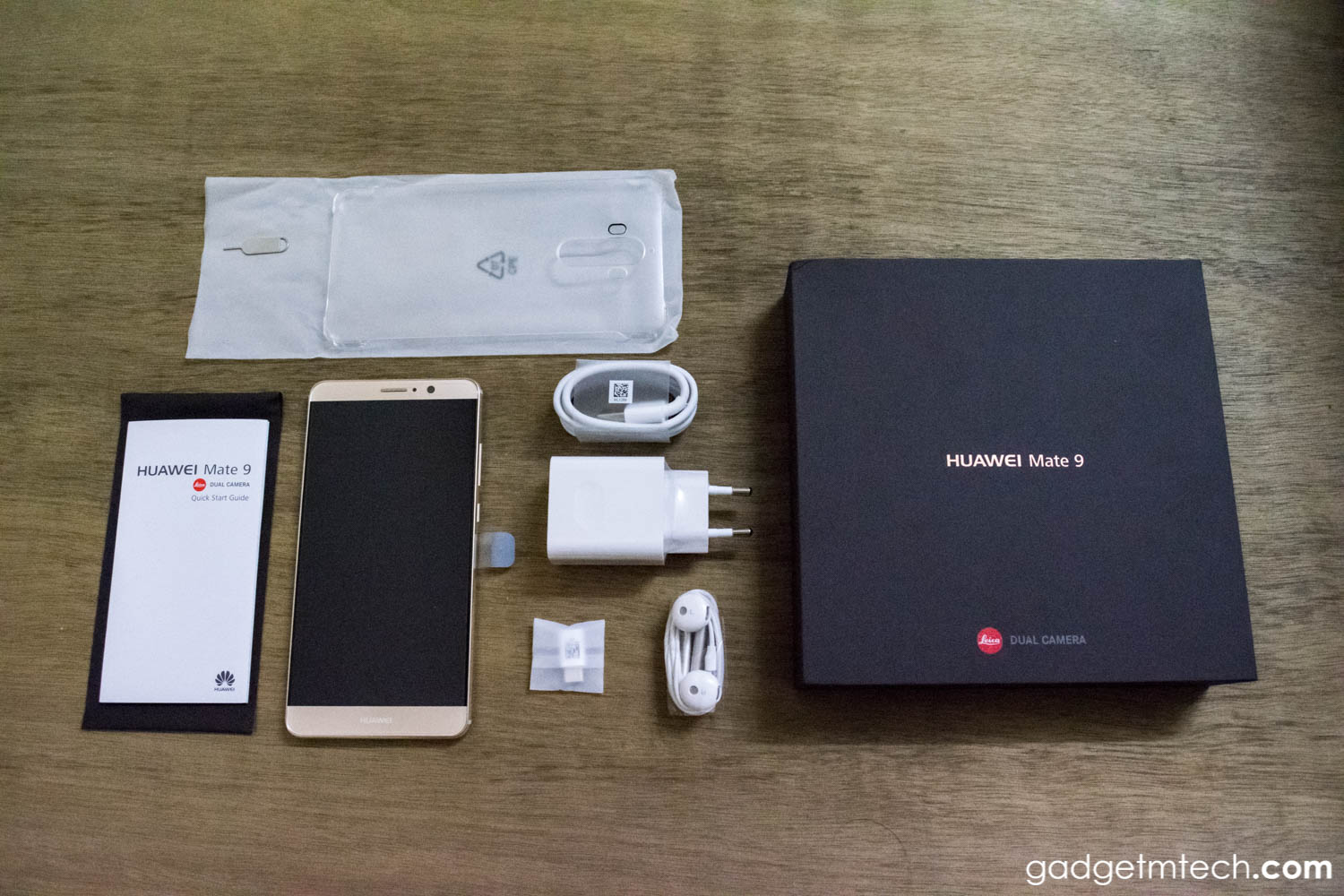
Open up the box, you’ll see the phone itself, manual guide, SIM ejector tool, phone case, USB Type-C cable, wall charger, USB Type-C to MicroUSB converter, and earphones. I’m really surprised to see so many things included in the box, especially the Type-C to MicroUSB converter.
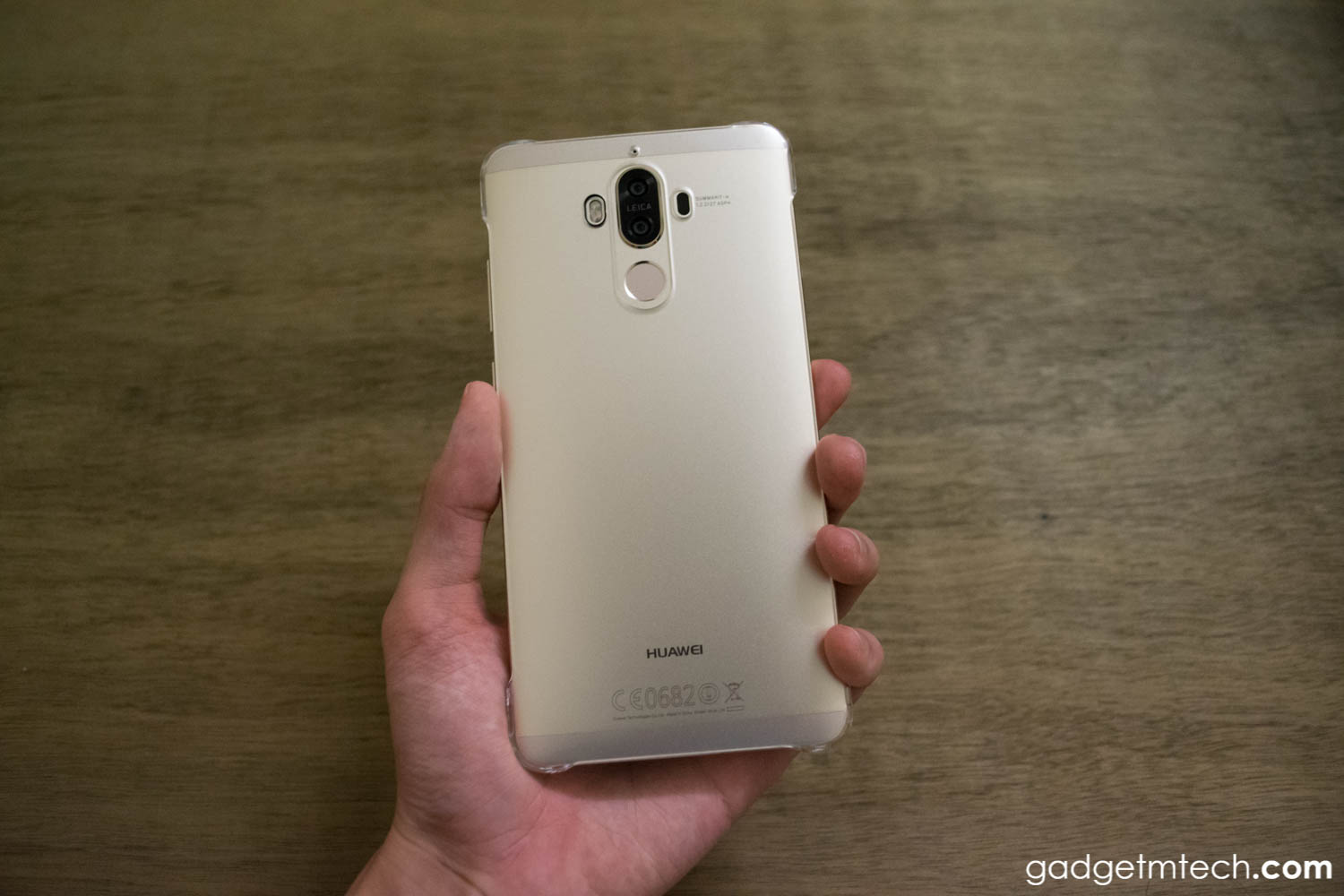
I have to admit that having a phone case included in the box is really a sweet idea, plus the screen protector is already on the phone when I first unboxed the device. Kudos Huawei, that’s so sweet of you!
Conclusion: Huawei did a great job including important accessories in the box. Not many manufacturers like Huawei will include a phone case and screen protector in the box.
Same Design Language, Small Improvements
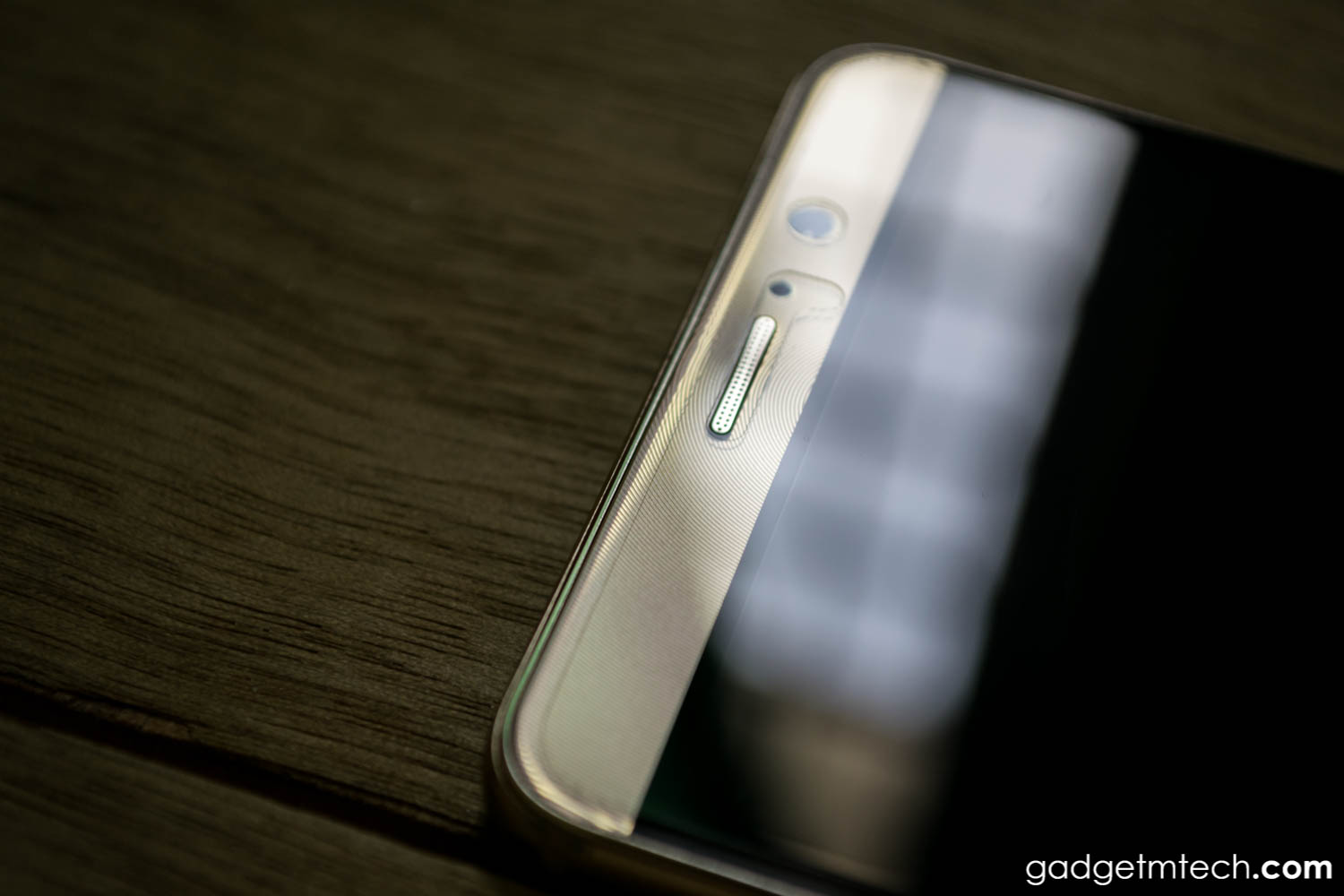
Looking at the front of the Mate 9, indeed it looks a lot like the Mate 8. The 5.9-inch display is covered by a 2.5D glass and the circular patterns are on the top and bottom of the phone.
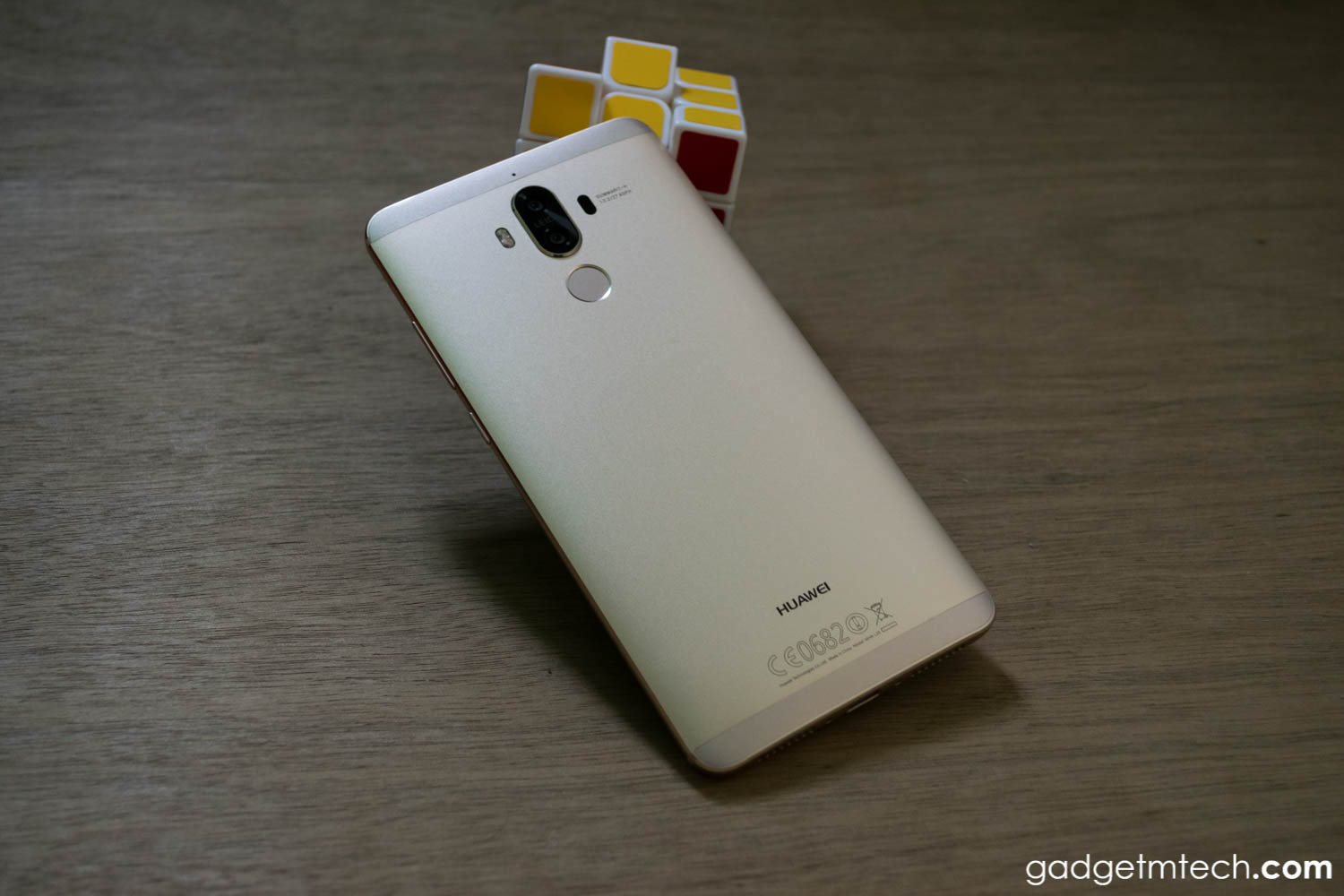
Flipping the phone over to the back is a different story, the phone features a metal unibody design with very slightly curved edges for better handling. The back panel doesn’t feel same as the Mate 8 as it has been sandblasted with a full hour of CNC milling. It looks and feels more premium, but is also slippery at the same time.
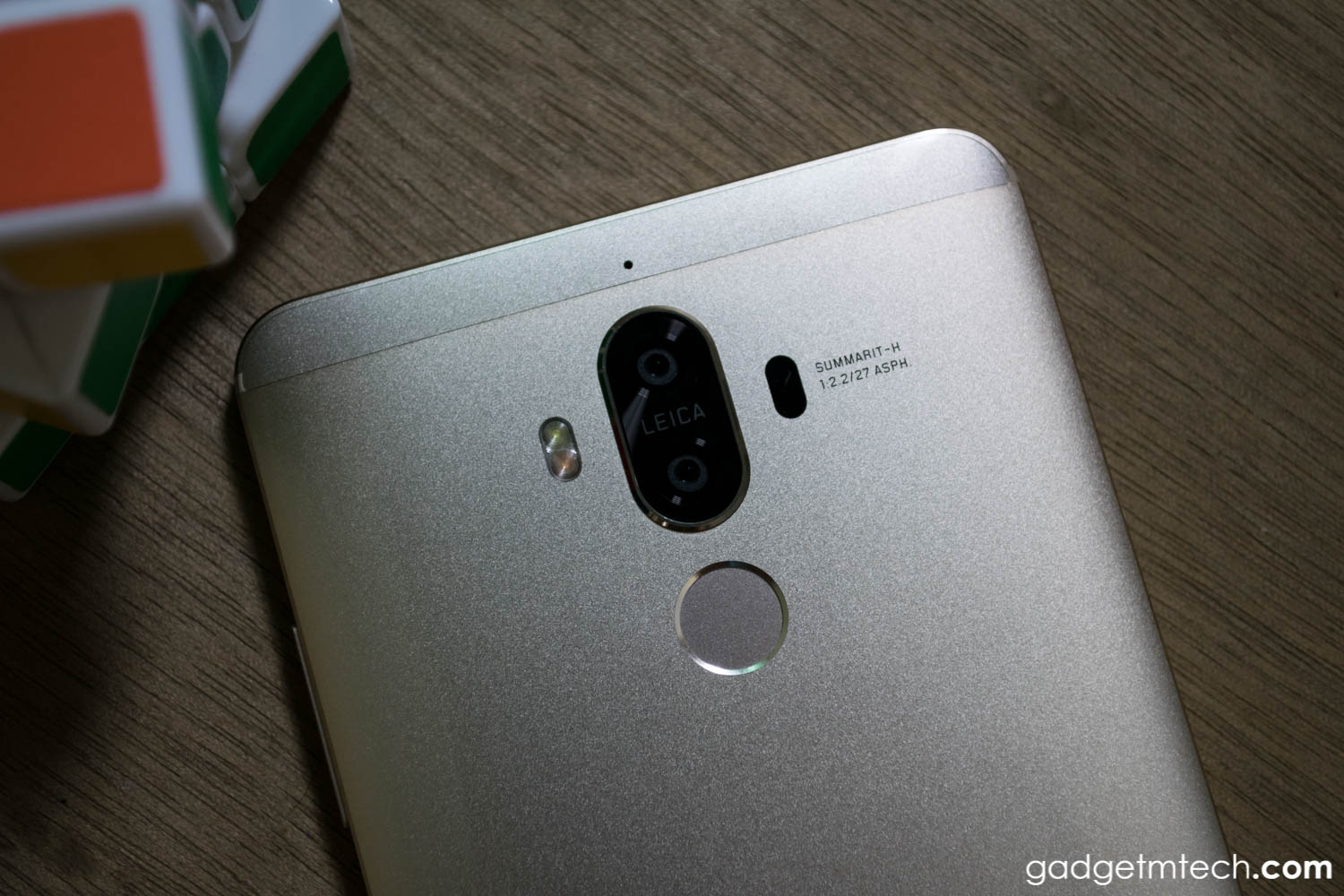
The second-generation Leica Dual Camera is sitting in between the dual-tone flash and laser autofocus. Below the camera lenses, there’s the fingerprint sensor in a rounded shape. One more thing, there’s also a microphone above the camera lenses. The Mate 9 features four noise-cancelling microphones for crystal-clear recordings. The noise cancellation technology helps to eliminate background noise and improve call quality.
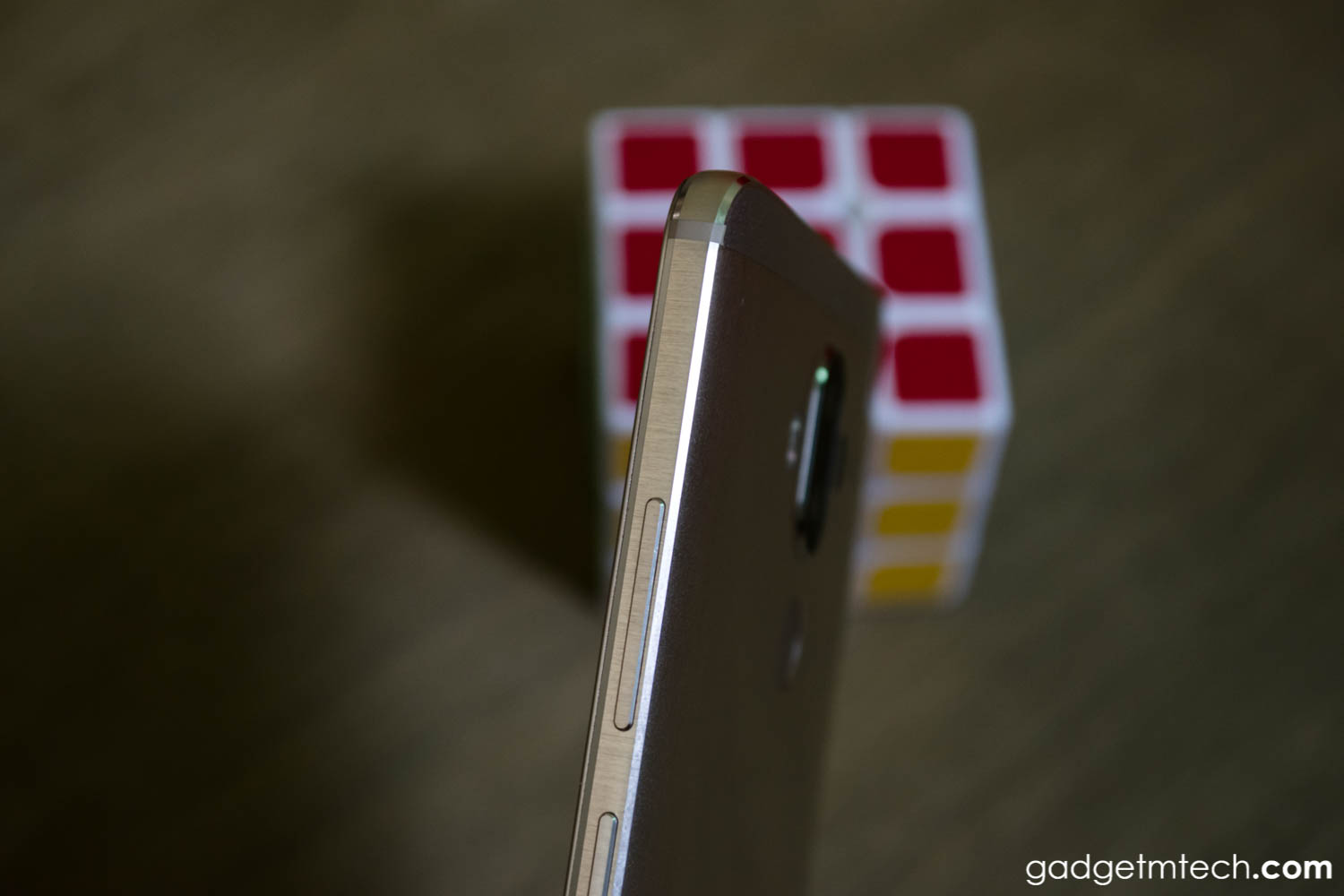
The phone is measured at only 7.9mm thin, all the sides have been polished with a brushed finish. Huawei did this for the same reason again — to improve the handling.
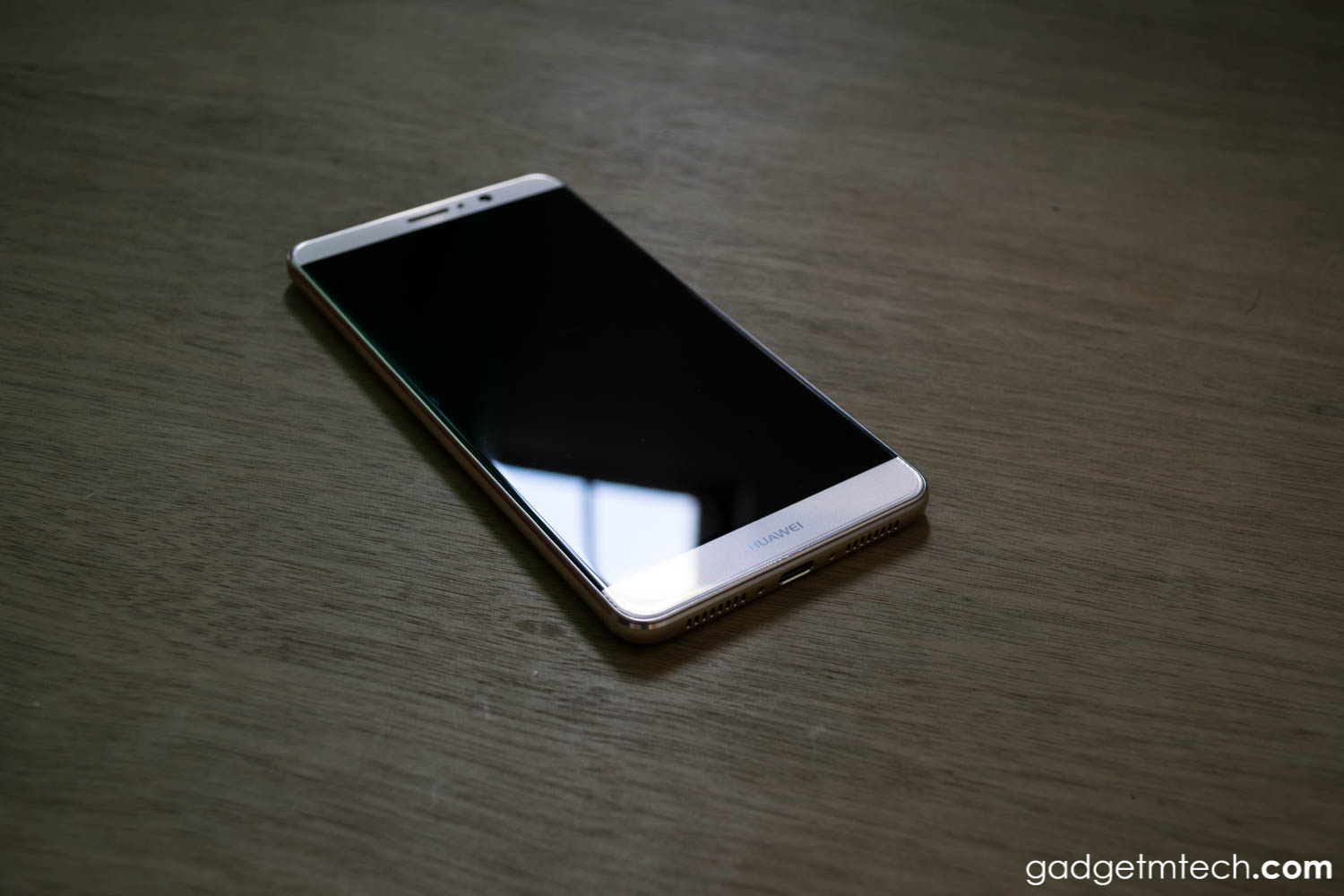
The bottom of the device houses the microphone, USB Type-C port, and the speaker. Not to forget that the Huawei Mate 9 actually features stereo speakers with the same separated tweeter and woofer design you see in leading acoustic systems. As for the top, there’s a 3.5mm audio jack and an IR blaster for remoting your TV, air conditioner, DVD player and more.
Conclusion: Overall, the Mate 9 has the same design language as its predecessor, but Huawei has further improved the design with the Mate 9, especially the handling. The Mate 9 now looks more polished, premium, and better to hold.
Still Full HD Display
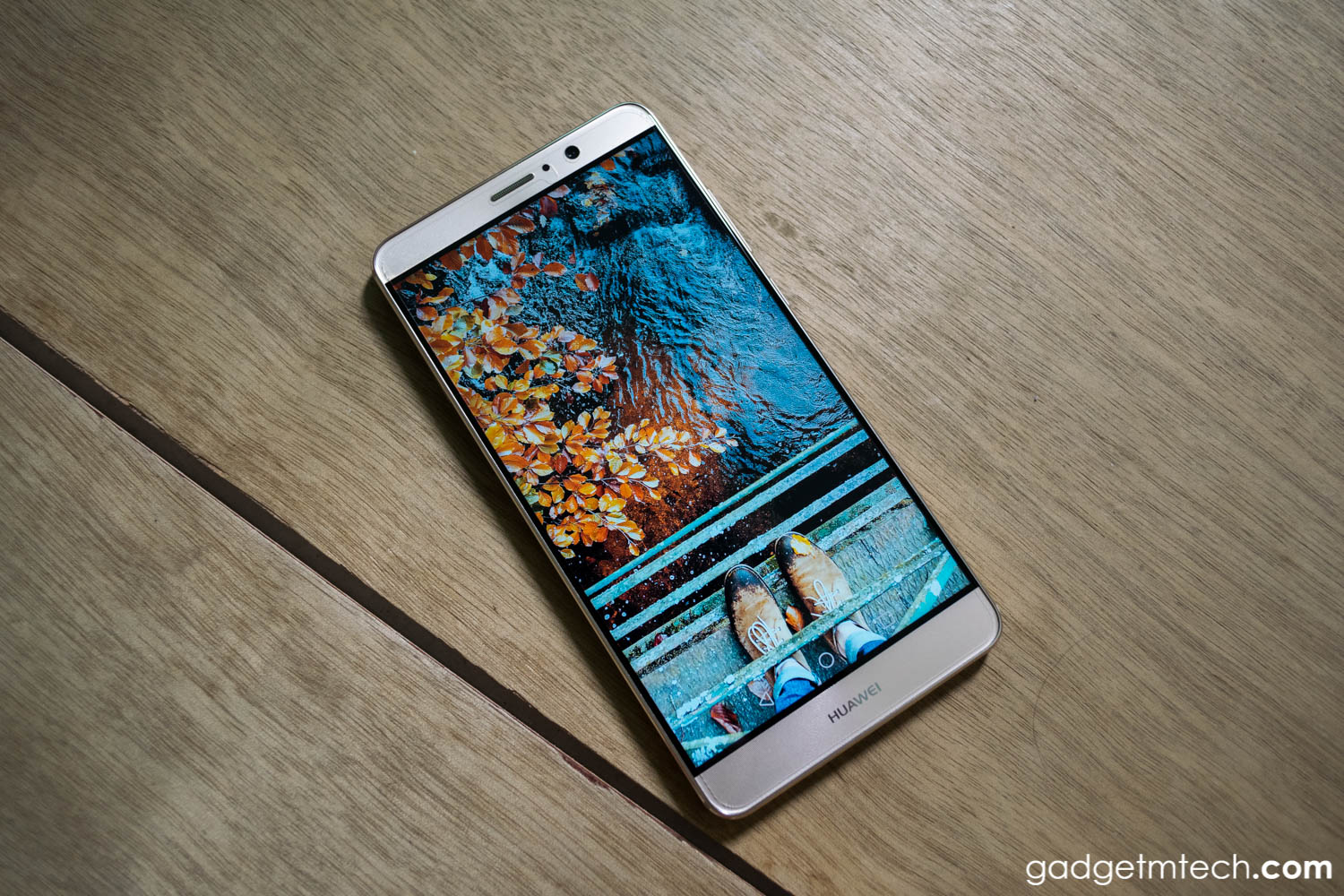
The Mate 9 sports a 5.9-inch Full HD IPS display, which is a small disappointment as most flagships nowadays already using a QHD panel. We aren’t sure why, but I think Full HD display is enough for me, and it consumes less power as well, which means the battery life will be better.
The display is sharp and the colors are vivid. Outdoor visibility is good, but the color accuracy will decrease when the brightness increased for a better outdoor visibility. It’s not really a big problem actually as what we need is able to see the information on the screen under the bright sun, no one really cares the color accuracy when you are at outdoor.
Conclusion: Even though it’s a little disappointing that Huawei is still using a Full HD panel for the display, but that’s not really a bad thing. The Huawei Mate 9 simply has one of the best Full HD displays out there.
Kirin 960 SoC
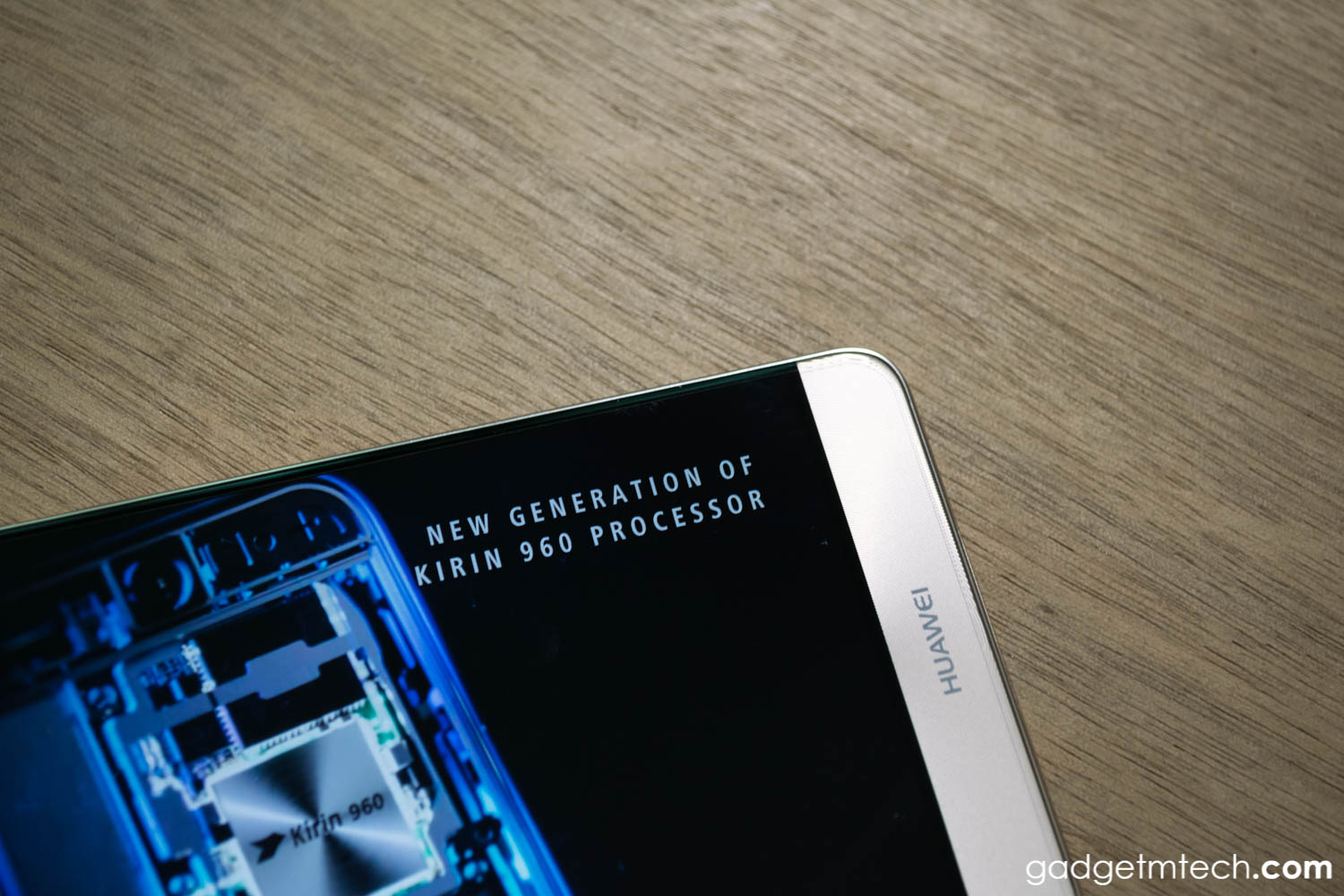
Powering the Mate 9 is Huawei’s own Kirin 960 processor with 4GB RAM and 64GB expandable storage. The performance is simply amazing without any hiccups or lags. Playing games like Smash Hit and F1 2016 isn’t a big problem for the device as I was able to get smooth frame rate with thermal under controlled.
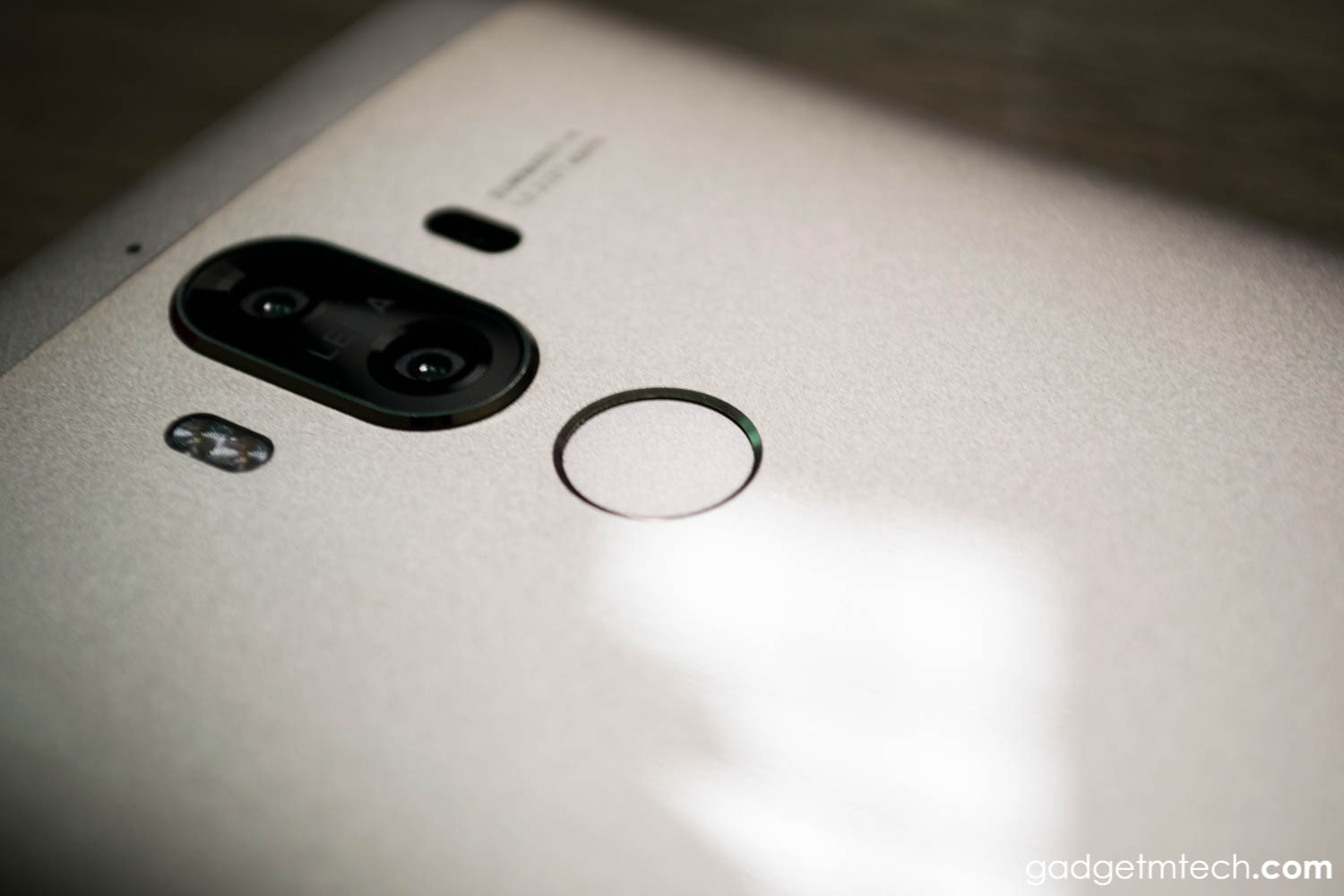
The fingerprint sensor remains one of the fastest I’ve ever used. Like the P9, it also works as a trackpad, performing swiping gestures will trigger the notification panel or switch photos in the gallery. However, I really hope that these swiping gestures can have more functions other than triggering the notification panel and scrolling through the pictures.
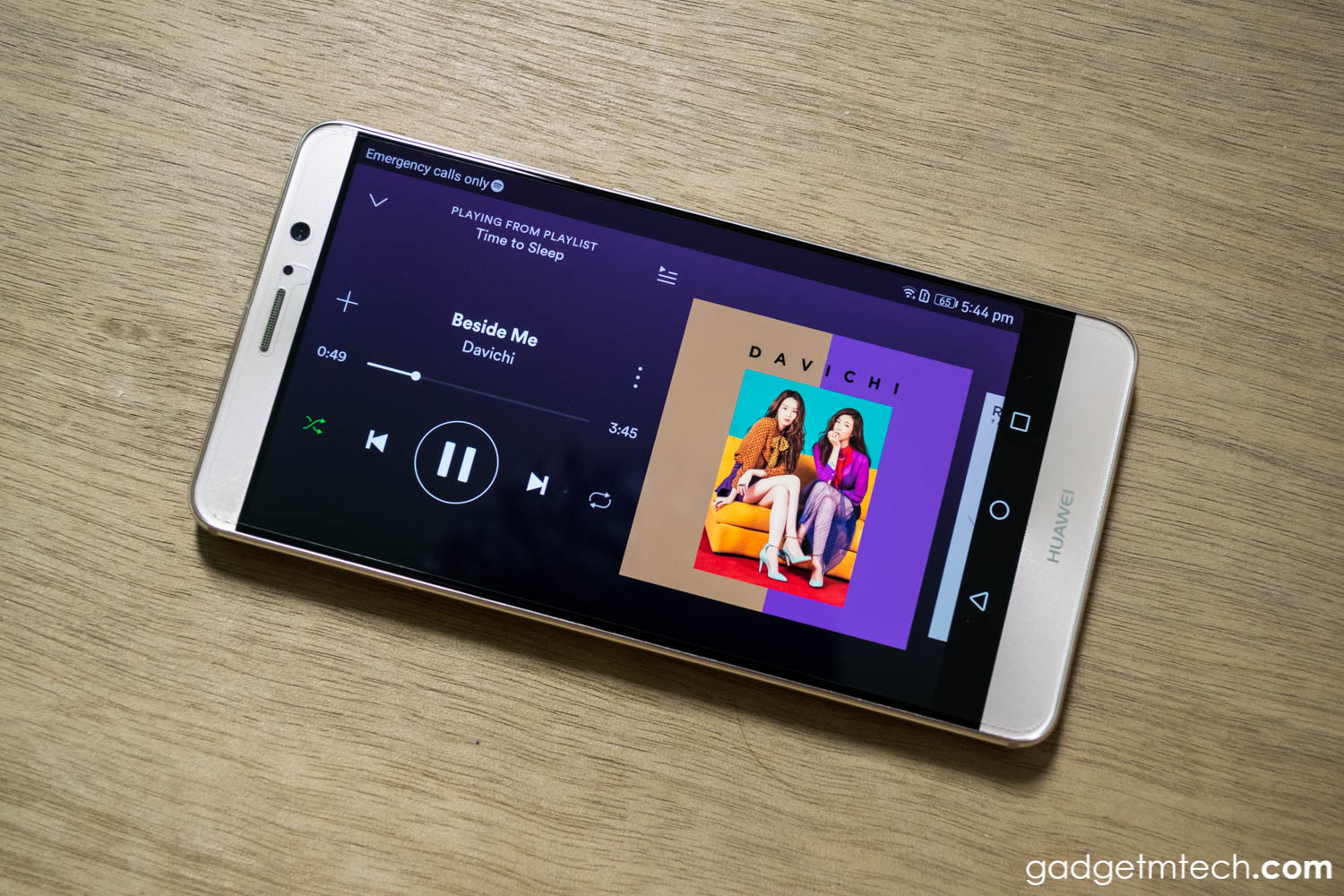
The speakers are pretty loud and clear with great stereo effect. You can turn on the Stereo+ feature to switch the audio from euphony to stereo automatically when you are in landscape orientation.
Conclusion: Performance isn’t a big issue for the Mate 9 thanks to the Kirin 960 processor with 4GB RAM. I really like the idea of having the stereo speakers with separated tweeter and woofer design, though it’s not as good as the dual front-facing stereo speakers.
EMUI 5.0 on Nougat
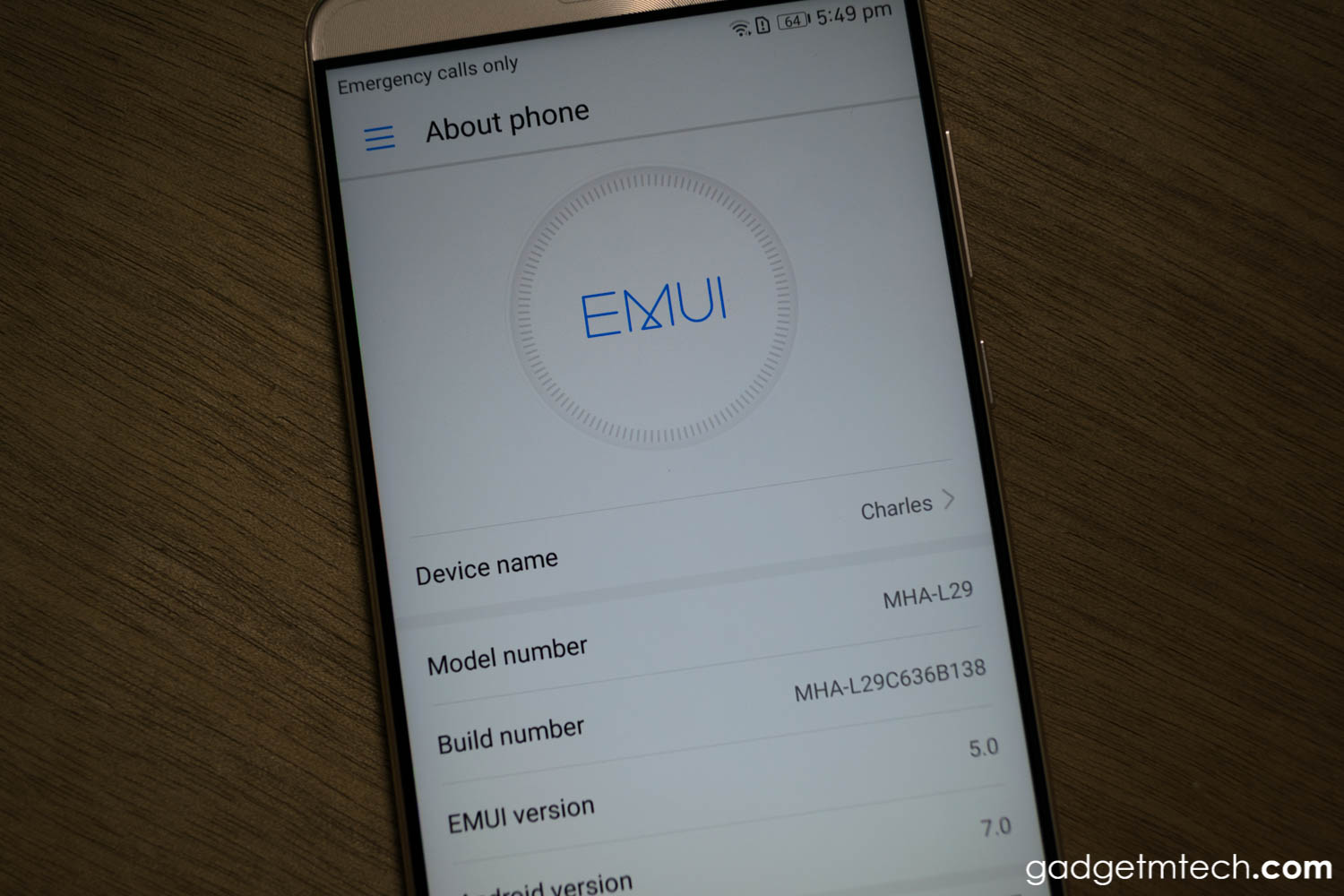
The Mate 9 is running on EMUI 5.0 based on Android 7.0 Nougat. If you have read my EMUI 5.0 vs EMUI 4.1 article, the Mate 9 basically has all the same features. So, we’ll just highlight a few features here.
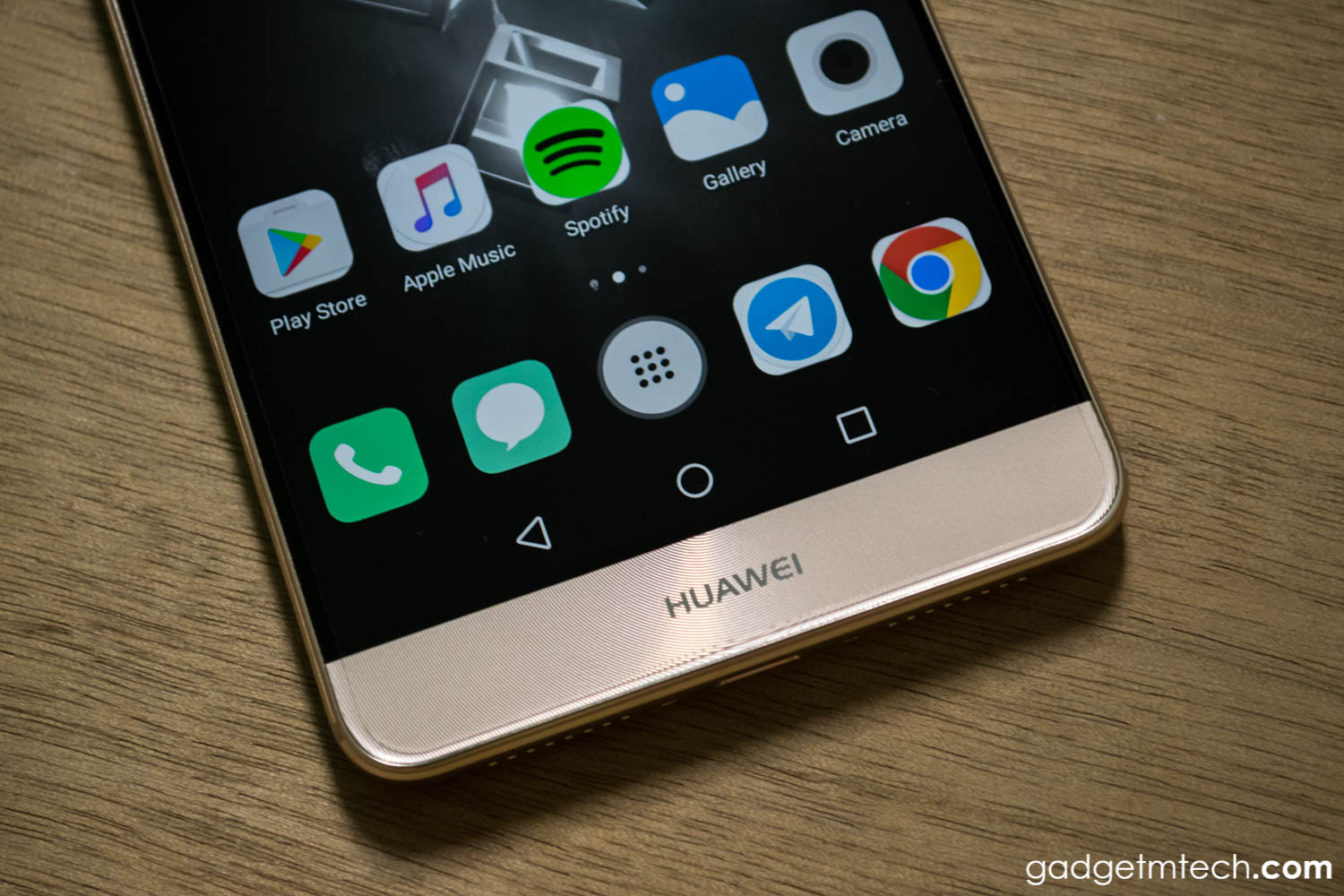
The app drawer is back! EMUI 5.0 now offers two types of home screen styles — Standard and Drawer. The Standard style shows all apps on the home screen, just like previous versions of EMUI. As for the Drawer style, it shows all apps on the drawer screen.
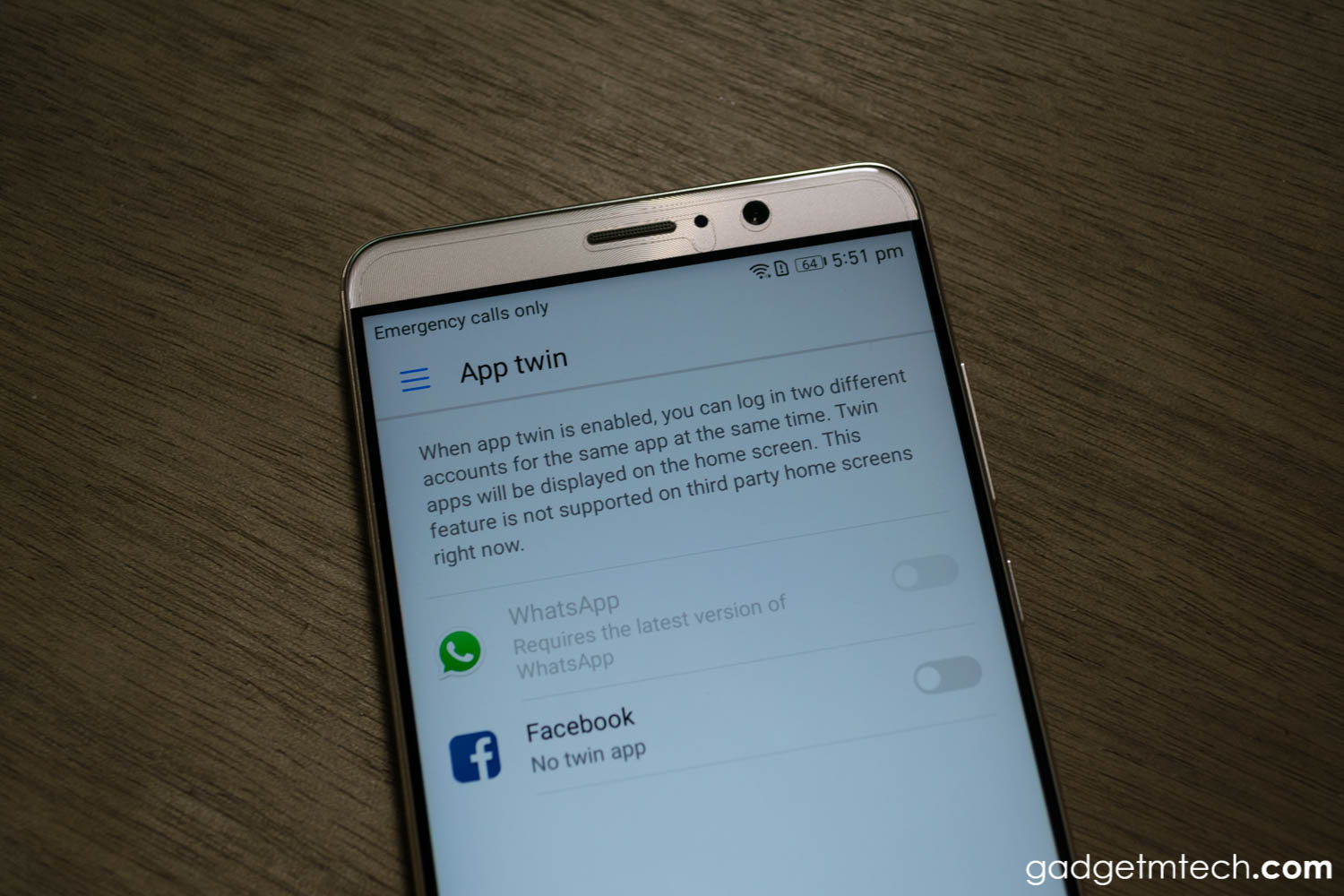
App Twin is a great feature for you to use your multiple Facebook or WhatsApp accounts in a phone. It allows you to login to two different accounts simultaneously. It’s like having two phones in one now, and the Mate 9 also supports dual-SIM too.
Conclusion: Overall, EMUI 5.0 has improved a lot with some improvements and new features which I really enjoy a lot. You can read more about EMUI 5.0 in our Compare & Contrast: EMUI 5.0 vs EMUI 4.1 article.
2nd-Gen Leica Dual Camera
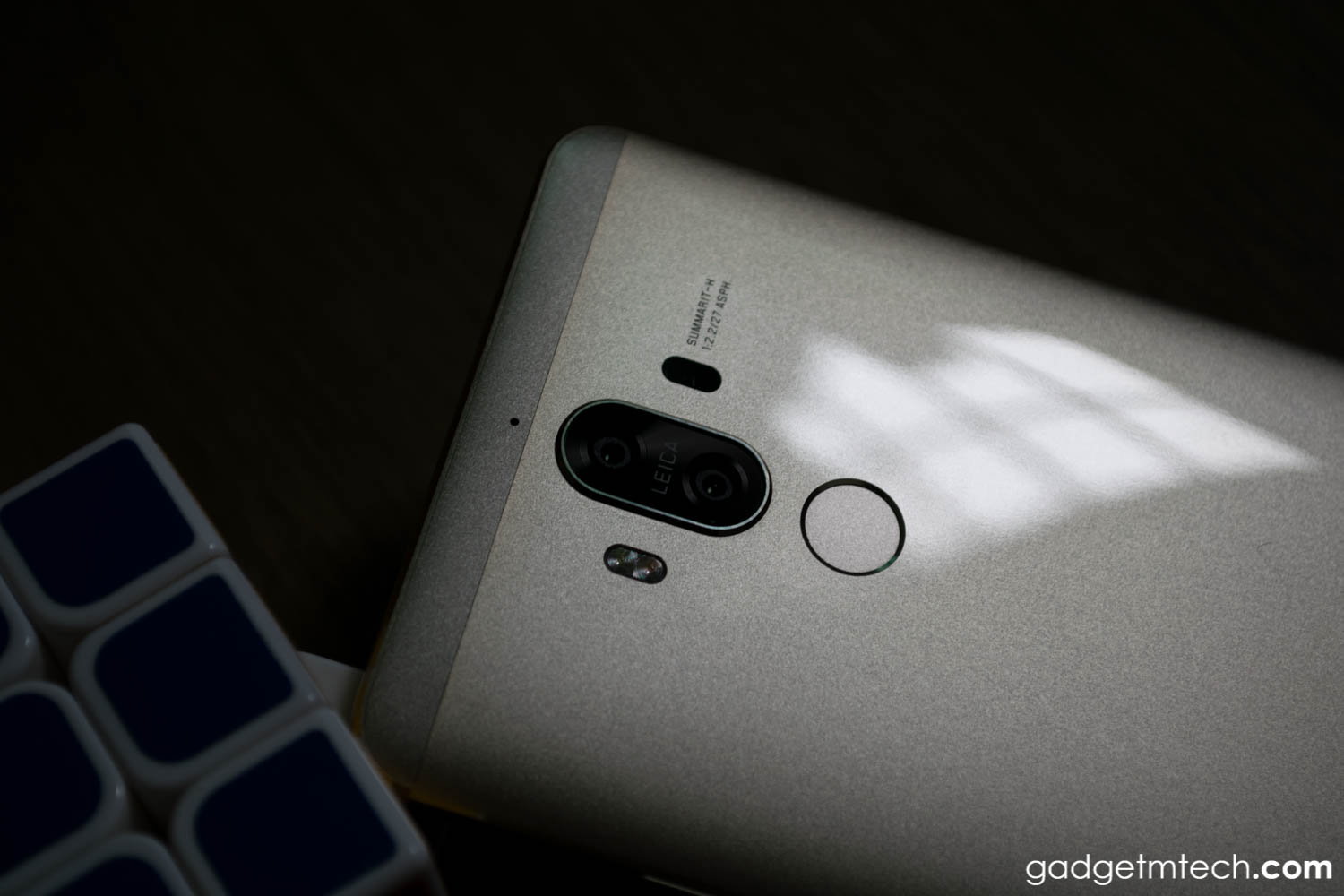
No doubt the main highlight of the Mate 9 is the second-generation Leica Dual Camera — 20MP f/2.2 monochrome + 12MP f/2.2 RGB sensors. Those two shooters now are enhanced by OIS, and there’s a new 4-in-1 hybrid autofocus that includes laser, phase-detect, depth, and contrast detection.
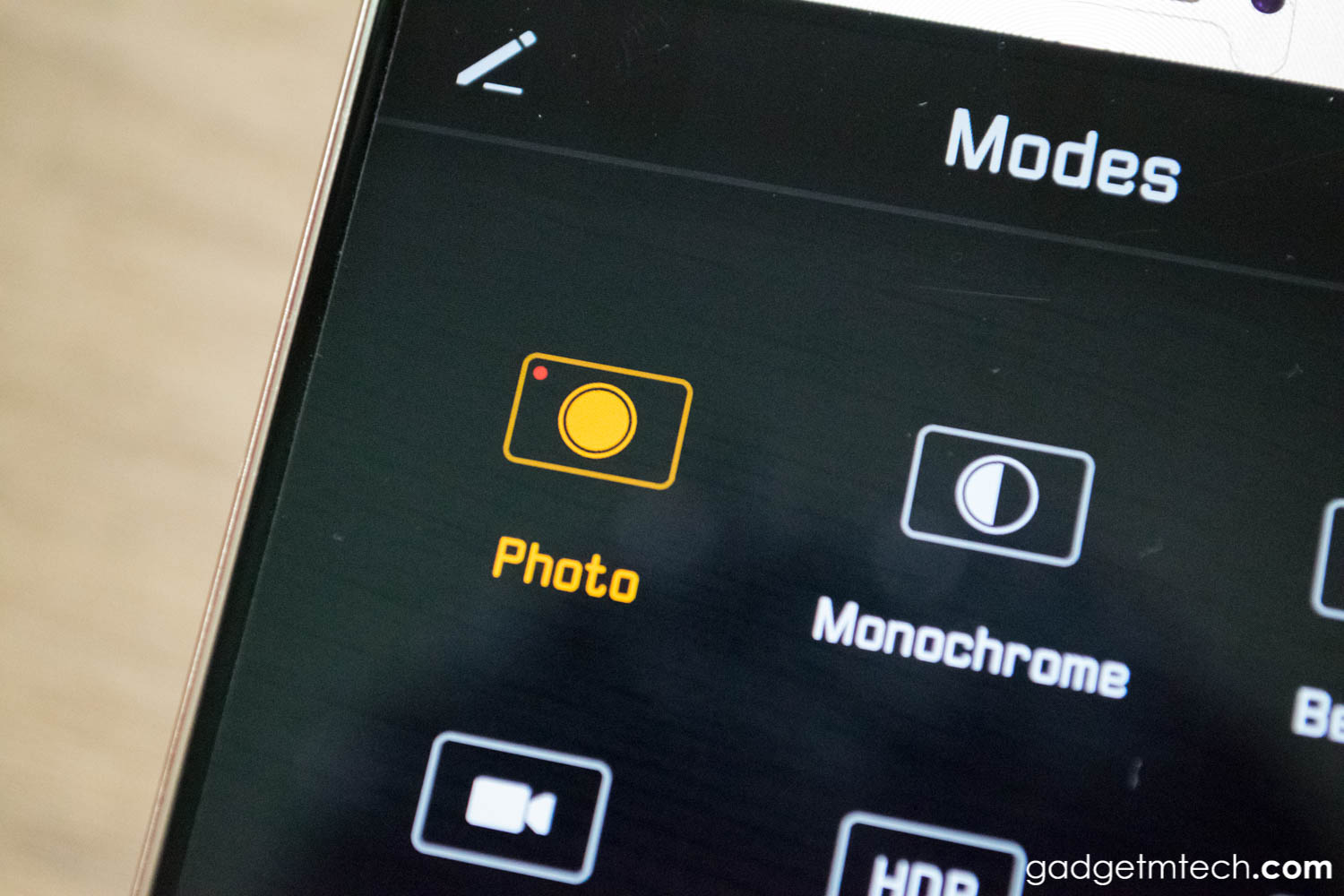
The camera is the trickiest part of reviewing as the resolutions for both cameras don’t match at all — 20MP and 12MP. When you are shooting in monochrome, the device shoots full 20MP photos. However, when you are shooting color, the device blends both monochrome and RGB footages — one for recording luminance data and image detail, another one for color. Additionally, its camera also supports a new Hybrid Zoom feature, which allows you to zoom without (significant) loss of quality, only applicable for 12MP photos, though. You can even change the color profile before shooting a photo. Below are some camera samples we shot in different modes — 20MP, 12MP, Hybrid Zoom, and monochrome.
20MP Camera Samples
12MP Camera Samples
Hybrid Zoom Camera Samples (12MP)
Monochrome Camera Samples (20MP)
Image quality generally is pretty good, but I did notice that some photos have soft details due to the noise reduction. Other than that, the Mate 9 is able to capture nice photos for your social media usage, you can even capture the stars in the sky as well, but you’ll have to switch to Pro mode.
Conclusion: Overall, I’m quite impressed with the Mate 9’s camera. I really enjoyed a lot capturing monochrome photos as Huawei is the only manufacturer that offers real monochrome image capturing, instead of applying the monochrome filter.
Big Battery, Fast Charging
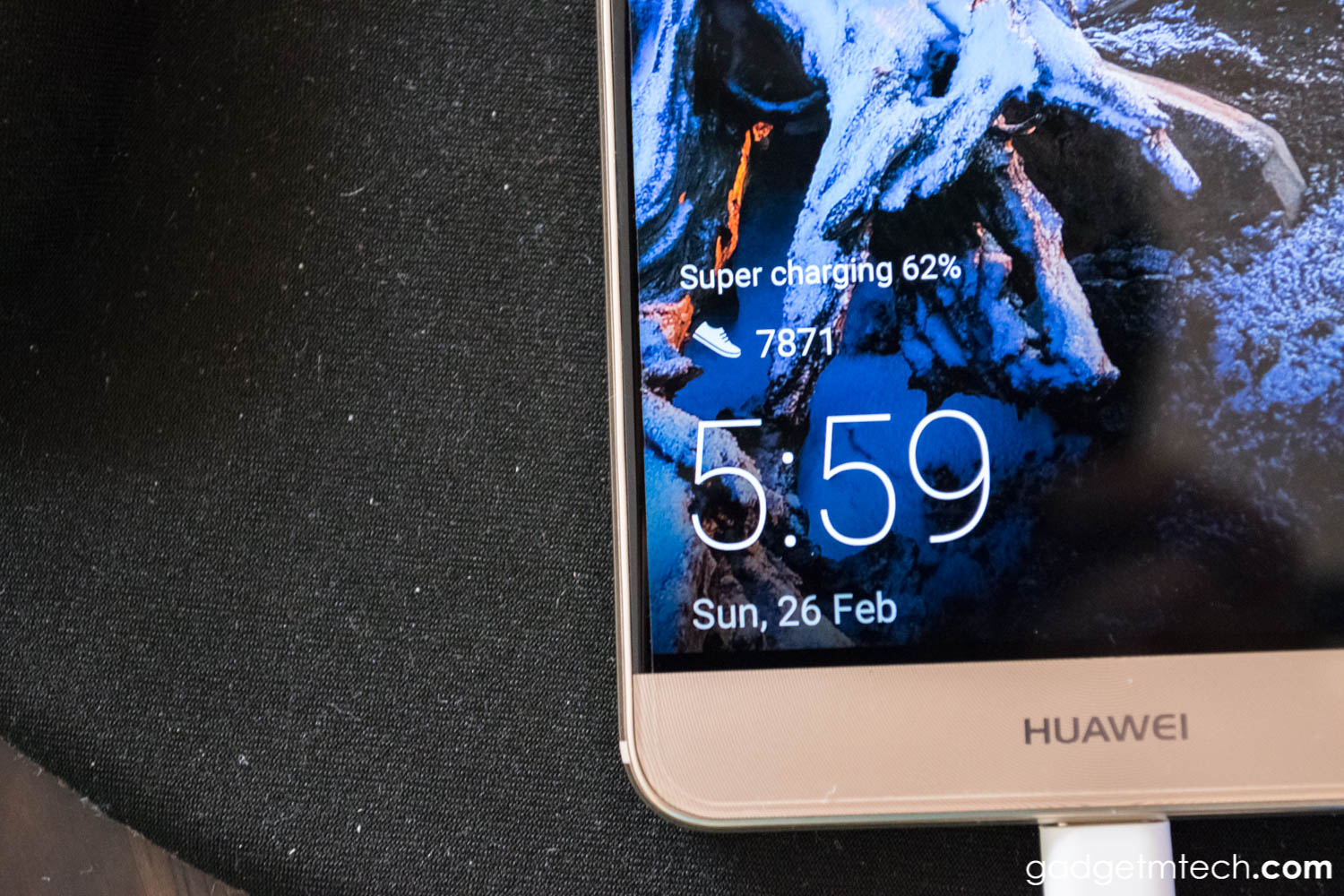
The Mate 9 packs a 4,000mAh battery with SuperCharge technology (5V/4.5A) supported. Let’s talk about its charging speed first. With the SuperCharge technology, I was able to charge the Mate 9 from 15% to 100% in just 76 minutes only, that’s pretty fast! Plus, thermal is under controlled while charging.
The battery life is pretty impressive. Based on my usage, I was able to get through a day easily with 6 hours of screen-on-time.
Conclusion: As I already mentioned in a few reviews, a smartphone with great battery life and fast charging is the best!
Final Words
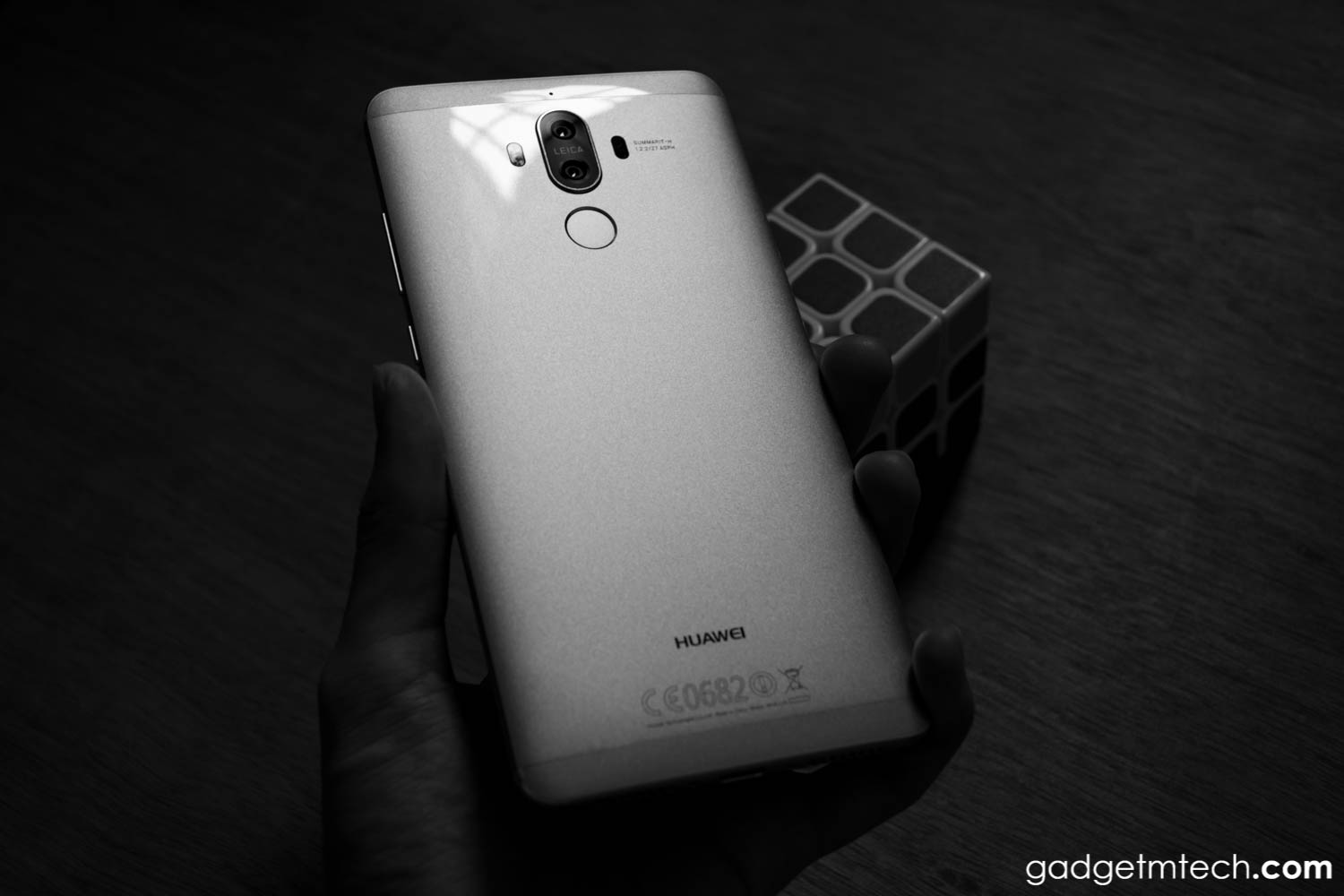
Pricing at RM2,699, the Huawei Mate 9 no doubt is a flagship that worth to purchase, especially if you are looking to purchase a phablet with high-end specs. The device has premium build quality, impressive performance, good camera, and fantastic battery life with SuperCharge technology supported! There’s no perfect smartphone, though. The device still comes with a few compromises like having only a Full HD display, and it’s heavy too at 190g. So, it all depends on what you need the most, I think this is really a good choice for many people.
Yay
- Impressive performance
- Impressive camera
- Fantastic battery life with SuperCharge technology
Nay
- Relatively big
- Heavier than most flagships
- Only Full HD display

